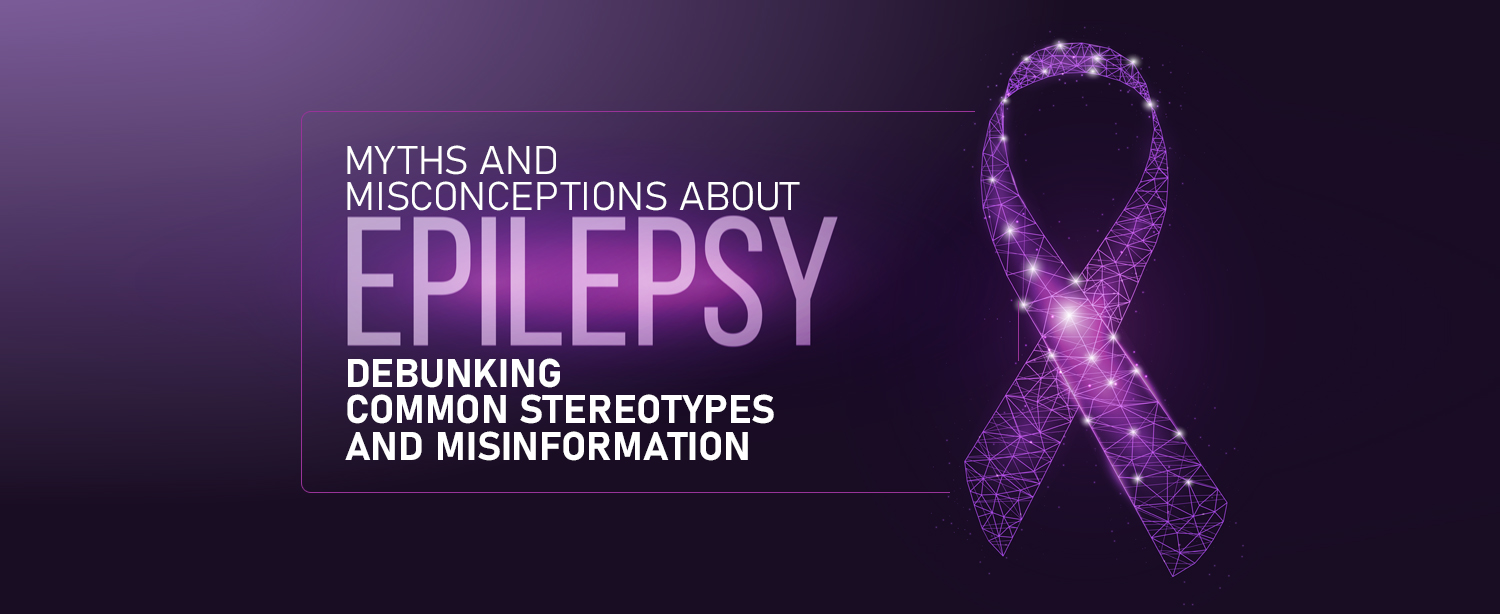Epilepsy affects millions of people in India, with an estimated prevalence of about 1 crore individuals living with the condition. Despite its significant impact, epilepsy remains widely misunderstood and stigmatized in the Indian society. Epilepsy is a neurological disorder characterized by recurrent seizures, which result from abnormal electrical activity in the brain. These seizures can vary widely in their manifestation and severity, ranging from brief episodes of staring or confusion to convulsions. While epilepsy can occur at any age, it often begins in childhood or old age. Despite its prevalence, epilepsy is often misunderstood, leading to numerous myths and misconceptions. As we observe International Epilepsy Day, it’s crucial to debunk these stereotypes and misinformation to promote awareness, understanding, and support for individuals living with epilepsy.
Debunking the Common Myths around Epilepsy
Myth: Epilepsy is contagious.
Fact: One of the most pervasive myths about epilepsy is that it can be transmitted from person to person through contact. In reality, epilepsy is not contagious. It’s a neurological condition caused by various factors, such as genetics, brain injury, or infection. It cannot be spread through casual contact, including touching, hugging, or being near someone with epilepsy.
Myth: All seizures look the same.
Fact: Seizures come in various forms, and not all of them involve convulsions. While some seizures manifest as convulsions or jerking movements, others may cause staring spells, confusion, or temporary loss of awareness. It’s essential to recognize that seizures can present differently depending on the individual and the type of epilepsy they have.
Myth: People with epilepsy are intellectually disabled.
Fact: Another common misconception is that epilepsy is synonymous with intellectual disability. While epilepsy can coexist with other developmental conditions, such as autism or intellectual disability, having epilepsy does not inherently affect a person’s intelligence. Many individuals with epilepsy lead fulfilling lives and excel in their careers and academics.
Myth: Epilepsy is always a lifelong condition.
Fact: While epilepsy is often a chronic disorder, it doesn’t mean that everyone diagnosed with epilepsy will have it for life. Some individuals may experience seizures for a limited period, while others may achieve seizure control with medication or other treatments.
Myth: Epilepsy is a rare disorder.
Fact: Contrary to popular belief, epilepsy is not rare. It affects approximately 50 million people globally, making it one of the most common neurological conditions. However, due to stigma and misinformation, people with epilepsy may feel isolated or marginalized.
Myth: Seizures are always dangerous.
Fact: While seizures can be frightening to witness, not all of them pose immediate danger. In many cases, seizures are brief and self-limiting, with no lasting consequences. However, certain types of seizures, such as prolonged convulsive seizures or those involving loss of consciousness, may require prompt medical attention. It is essential to stay informed about seizure first aid.
Epilepsy Treatment at Kokilaben Dhirubhai Ambani Hospital
Seizures can be managed with timely and appropriate use of anti-seizure medications. In certain instances, surgery may offer significant benefits to patients who do not respond well to medications. Highly trained and experienced specialists at the Centre for Neurosciences will assist you to understand epilepsy better and guide you with further treatment options. We have established a “Comprehensive Epilepsy Care Programme” to evaluate individuals with epilepsy and provide optimal medical and surgical interventions. Kokilaben Dhirubhai Ambani Hospital, Mumbai is the first and only centre in Western India offering cutting-edge diagnostic facilities for epilepsy assessment all under one roof. Our team of neurologists and neurosurgeons is dedicated to delivering multidisciplinary care that extends beyond medication and surgical procedures. Furthermore, our Epilepsy Support Group hosts regular informative sessions addressing medication, education, employment, and social concerns for both patients and caregivers. For more information about our Epilepsy care, please visit our website: https://www.kokilabenhospital.com/departments/centresofexcellence/centrefor_neurosciences/epilepsy.html


